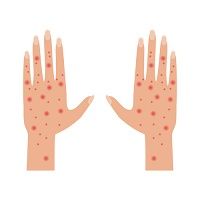Article
Scabies Control: Ivermectin Is a Winner
Author(s):
Researchers have found that administering the antiparasitic drug ivermectin to an entire population is an effective way to reduce scabies and impetigo

Researchers have found that administering ivermectin to an entire population is an effective way to reduce scabies and impetigo. Andrew Steer, PhD, of the Center for International Child Health at the Royal Children’s Hospital in Victoria, Australia, and colleagues conducted a study “to strengthen the evidence base for mass drug administration for scabies control.” The results of their investigation were published in the New England Journal of Medicine on December 10, 2015.
Scabies makes people scratch, which in turn makes them susceptible to impetigo. Impetigo can lead to septicemia, glomerulonephritis, and rheumatic heart disease. Although there are effective treatments for scabies, reinfestation can easily occur in “regions where the pathogen is endemic,” according to the researchers. Mass administration of either permethrin or ivermectin to whole communities may be the best method of protecting people from scabies.
This trial is named “the Skin Health Intervention Fiji Trial (SHIFT)” and was conducted between September 2012 and September 2013 on three island communities. One community received standard care, which involved “the administration of permethrin to affected persons and their contacts,” a second received mass administration of permethrin, and the third mass administration of ivermectin.
According to the researchers “The primary outcome was the change in the prevalence of scabies and of impetigo from baseline to 12 months.” Adverse events were classified as serious if they were life-threatening, led to hospitalization or resulted in either persistent or substantial disability.
There 2051 participants in total, with 719 in the ivermectin group, 532 in the permethrin group, and the remaining 800 in the standard care group. “At 12 months, the prevalence of scabies had declined in all study groups, with the greatest decline observed in the ivermectin group.” In fact, the appearance of scabies was lowest for those in the ivermectin group, and the rate of disappearance was highest. However, “adverse events were more common in the ivermectin group,” as well. But, “no adverse event was serious or persisted for more than 7 days.”
Despite the fact that this study has some limitations, the results support “the mass administration of ivermectin for scabies control.” The researches suggest that “effectiveness must now be evaluated beyond island settings and in larger populations.”




